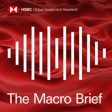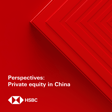Become a Creator today!Start creating today - Share your story with the world!
Start for free
00:00:00
00:00:01

The Macro Viewpoint - Fed tightening, China’s property stress, Europe’s gas worries
We look at what's next for the Fed, new challenges facing China’s property markets and the potential pain from natural gas rationing in Europe. Disclaimer. To stay connected and to access free to view reports and videos from HSBC Global Research click here
Hosted on Acast. See acast.com/privacy for more information.
Transcript
Introduction to HSBC Global Viewpoint
00:00:00
Speaker
Welcome to HSBC Global Viewpoint, the podcast series that brings together business leaders and industry experts to explore the latest global insights, trends and opportunities.
00:00:11
Speaker
Make sure you're subscribed to stay up to date with new episodes.
00:00:14
Speaker
Thanks for listening.
00:00:15
Speaker
And now onto today's show.
Overview of Episode Topics
00:00:17
Speaker
You're listening to the HSBC Global Research Macro Viewpoint, our weekly review of the key reports from economists and strategists across the globe.
00:00:26
Speaker
Coming up this week, we assess the path for U.S. monetary policy as the Fed ramps up its tightening cycle.
00:00:34
Speaker
We explore the latest stresses in China's property market.
00:00:37
Speaker
And we examine the potential economic impact of gas rationing in the Eurozone as Russia cuts supply even further.
00:00:46
Speaker
This podcast was recorded on Thursday the 28th of July 2022.
Fed's Rate Increase Explained
00:00:49
Speaker
Our full disclosures and disclaimers can be found in the link attached to this podcast.
00:00:55
Speaker
Hello, I'm P.S.
00:00:56
Speaker
Modeler.
00:00:57
Speaker
And I'm Aline Van Dyne.
00:00:59
Speaker
We begin this week in the U.S., where the Federal Reserve has just held its latest policy meeting, the second in a row where the discussions followed a higher than expected inflation number.
00:01:10
Speaker
Let's speak to Ryan Wang, U.S. economist, who joins us from New York.
00:01:14
Speaker
So, Ryan, as expected, the Fed raised rates by another 75 basis points.
00:01:21
Speaker
What was the main reasoning behind this?
00:01:24
Speaker
Hi, Eileen.
00:01:25
Speaker
That's right.
00:01:26
Speaker
The FOMC raised rates by 75 basis points for a second consecutive meeting.
00:01:31
Speaker
And that takes the policy rate up to nearly two and a half percent.
00:01:35
Speaker
That is pretty much right on top of the policymakers estimate for the longer term neutral federal funds rate.
00:01:43
Speaker
And the reason why the Fed is continuing to tighten monetary policy relates to inflation.
00:01:49
Speaker
Inflation is still running well above the Fed's 2 percent target.
00:01:53
Speaker
And Powell actually began his press conference the same way as he did in June, by emphasizing the committee's number one focus is going to be about containing inflation expectations and making sure that inflation starts to head lower.
00:02:06
Speaker
We haven't seen that in the data yet.
00:02:08
Speaker
And so that's the reason for the continued upward movement in policy rates.
00:02:13
Speaker
What's next is another 75 basis points in September on the cards.
00:02:19
Speaker
Well, this was interesting.
00:02:20
Speaker
Powell said that the Fed would no longer be providing the explicit near-term guidance that it did on the way up to this neutral rate of 2.5%.
00:02:31
Speaker
Going forward, it's going to be a meeting-by-meeting approach.
00:02:33
Speaker
It's going to depend on the economic data.
Powell's Approach to Rate Decisions
00:02:36
Speaker
And so Powell said that it was possible that
00:02:39
Speaker
that we get another unusually large increase at the September meeting, essentially implying that another 75 basis points could be on the table, but it will depend on what happens to inflation and importantly, what happens to economic activity over the next several months.
00:02:56
Speaker
Any further highlights in terms of economic activity, in terms of what Powell may have focused on?
00:03:03
Speaker
Well, as the press conference went on, it became increasingly clear that the FOMC is becoming attentive to downside risks to growth.
00:03:13
Speaker
And specifically, Powell mentioned a few sectors of the economy that are already showing some slowdown.
00:03:18
Speaker
He mentioned slower growth in consumer spending, weakness in the housing market,
00:03:23
Speaker
and highlighted that business fixed investment may have already started to decline.
00:03:28
Speaker
Are those the key data points to watch in the coming weeks and months?
00:03:32
Speaker
Well, it's going to be important to watch what happens to growth and activity, and it's also going to be important to see what's going on with the labor market.
00:03:40
Speaker
There's been some divergences in what the labor market data are saying.
00:03:45
Speaker
Businesses may be becoming less confident about the economic outlook, and that may be reducing their hiring needs.
00:03:53
Speaker
And also in the wage data, we've seen very rapid wage growth over the past year, and we want to watch carefully to see whether that's slowing down.
00:04:01
Speaker
That could set the stage for inflation pressures to eventually ease.
00:04:05
Speaker
And so that's what I would focus on, inflation and the job market.
00:04:09
Speaker
Ryan, thanks for the update, and we'll all be watching this very closely.
00:04:14
Speaker
Thanks, Aline.
Chinese Property Market Issues
00:04:18
Speaker
We head to China now, where the property market has been in the headlines again.
00:04:22
Speaker
This week, some homeowners refused to make their mortgage payments, adding pressure to an already vulnerable housing market.
00:04:29
Speaker
Jing Liu, Chief Economist for Greater China, can give us the details.
00:04:34
Speaker
Jing Liu, welcome to the podcast.
00:04:35
Speaker
Thanks for having me.
00:04:36
Speaker
So Jing, why are homeowners not paying their mortgages in China?
00:04:41
Speaker
And do we see this as the start of a mortgage crisis?
00:04:45
Speaker
Well, in the recent news coverage, the mortgage boycotts,
00:04:49
Speaker
is actually more about unwillingness to pay.
00:04:52
Speaker
And that is because the home buyers don't see the certainty when they can receive the homes they have purchased.
00:05:00
Speaker
So they try to rush for some kind of urgency such that the government can come up with a solution.
00:05:06
Speaker
We don't think this is the start of the Chinese mortgage crisis.
Potential Bailout Plans for Developers
00:05:10
Speaker
Compared to the U.S., Chinese housing market is quite different.
00:05:13
Speaker
To start with, Chinese mortgage underwriting actually
00:05:18
Speaker
has been quite stringent.
00:05:20
Speaker
In particular, we have seen the down payment requirement is fairly high, 30% for the first home, 50% for the second or the third home.
00:05:29
Speaker
So in that case, mortgage has long been the safest asset on BEG's balance sheet.
00:05:36
Speaker
As of the first quarter, the non-performing loan ratio is only 0.3%.
00:05:42
Speaker
And for the second reason, you know, in U.S., a lot of people believe that over-securitization contributed to the crisis contingent to the financial system.
00:05:52
Speaker
In China, the securitization is still in the nascent stage.
00:05:56
Speaker
Only 6% of the mortgages are securitized.
00:05:59
Speaker
So in that sense, there's a much little risk in terms of a contingent to the financial system.
00:06:05
Speaker
Nevertheless, when it comes to property, it has a lot to do with confidence.
00:06:09
Speaker
So are banks and financial regulators concerned?
00:06:12
Speaker
Yeah, they start to be concerned given the unexpected turn of mortgage boycott and reportedly some of the suppliers to the distressed developers also joined the loan strike.
00:06:25
Speaker
So they are keenly monitoring the situation in terms of the asset quality, as well as whether that has shaken the
00:06:33
Speaker
the demand for a loan in the real economy.
00:06:37
Speaker
What are the solutions that could be brought to end this housing market saga?
00:06:42
Speaker
And do some solutions bring this issue of moral hazard?
00:06:46
Speaker
Right.
00:06:47
Speaker
So the housing market turmoil has lasted for a while.
00:06:51
Speaker
And we have seen quite some measures rolled out, but more like a piecemeal.
00:06:57
Speaker
So in our view, centrally initiated or at least centrally
00:07:02
Speaker
supported solution is much needed.
00:07:04
Speaker
And ideally, that will come in a format of some sort of a bailout plan.
00:07:10
Speaker
And the idea is to basically inject liquidity to the distressed developers.
00:07:15
Speaker
But the ultimate goal is not to save the developers, but rather to stabilize the confidence, to turn the expectation around by, you know, finishing up all the incomplete projects and try to deliver that to the market.
00:07:31
Speaker
And if that happens, I think, you know, overall, the housing market expectation can improve and that could help stabilize the situation.
00:07:40
Speaker
And of course, the bailout plan is usually controversial and people may worry about why saving those developers and will that contribute to their moral hazard.
00:07:50
Speaker
And we believe, you know, this will come with a huge cost to the developers and usually
00:07:57
Speaker
you know, it could require the control rights when government intervenes directly.
00:08:02
Speaker
So that could contain the moral hazard quite a bit.
00:08:06
Speaker
And as for the homebuyers, actually in China, without a national framework of bankruptcy for the individuals, the cost of walking away from mortgages is quite high.
00:08:17
Speaker
So we don't think that's a problem for the homebuyers to start with.
00:08:21
Speaker
Jingmini, thanks for that update.
00:08:23
Speaker
My pleasure.
00:08:24
Speaker
Thank you.
Impact of Reduced Gas Flow to Europe
00:08:28
Speaker
This week, Russia cut its gas flows to Europe again, threatening the continent's supplies ahead of the winter and raising the prospect of energy rationing.
00:08:38
Speaker
Our European economics team have been assessing the potential implications and Fabio Balboni, senior European economist, is here to talk us through the findings.
00:08:50
Speaker
So Fabio, quite a lot of headlines around whether or not Russian gas will or won't be flowing into Europe.
00:08:57
Speaker
Just update us on the latest.
00:08:59
Speaker
Well, the main issue here is the Nord Stream 1 pipeline that is one of the biggest source of Russian gas into Europe and particularly relevant for Germany.
00:09:12
Speaker
And there were some concerns on that pipeline after the maintenance period, which meant that flows were down to zero starting from the 10th of July.
00:09:26
Speaker
And there were some concerns that that flow might not have been restored even after the maintenance period.
00:09:33
Speaker
So there was a partial relief on the 21st of July because actually the flow of gas was at least partially restored.
00:09:41
Speaker
So not quite to 100 percent of the flow that we usually see in that pipeline, but back to 40 percent, which was the level that we've had for a few weeks before the maintenance period.
00:09:53
Speaker
But that relief was actually quite short lived.
00:09:56
Speaker
because on the 27th of July, so just a few days later, then Gazprom announced a further reduction of the flow of gas through that pipeline down to 20% of the usual level, citing some issues, particularly with technical issues related to turbine.
00:10:15
Speaker
that would not have been delivered, although the European Commission and the German government said actually that those turbines had been delivered.
00:10:22
Speaker
So clearly there's still quite a lot of uncertainty regarding the flow of gas through that crucial pipeline into Europe.
European Gas Reduction Plan and Economic Impacts
00:10:30
Speaker
And Fabio, Europe already is dealing with much higher gas prices and energy prices more generally, and that's already clearly having an effect.
00:10:40
Speaker
But this particular issue around the supply of gas, there are concerns or even plans for gas rationing, right?
00:10:48
Speaker
Yeah.
00:10:49
Speaker
Yeah, absolutely.
00:10:50
Speaker
In fact, the European Commission recently issued a paper to reduce the gas consumption in Europe by 15% and asking countries to abide to those targets or do on a voluntary basis.
00:11:04
Speaker
And this week, the European Council agreed on those targets, albeit with several exceptions, depending on how well countries are plugged in
00:11:15
Speaker
to the European network, the relative dependence on Russian gas.
00:11:19
Speaker
But basically, Brussels is preparing for winter without Russian gas, and the 15% gas reduction would indeed prepare Europe to that scenario.
00:11:32
Speaker
Obviously, this is a worst case scenario.
00:11:34
Speaker
At the moment, there is some gas flowing into Europe.
00:11:37
Speaker
But even at those levels, it would be probably hard for European countries to be able to refill their storage facility for gas.
00:11:46
Speaker
And therefore, even at those level, some possible Russian might be involved.
00:11:54
Speaker
Given this backdrop, what is the actual economic effect now?
00:11:58
Speaker
And what are the risks if indeed there are no further gas supplies from Russia?
00:12:05
Speaker
Well, we'll be looking at different scenarios here for the Eurozone as a whole, and specifically for Germany.
00:12:11
Speaker
Obviously, Germany here is the country that could potentially suffer more, given its reliance on gas directly from Russia.
00:12:20
Speaker
So we've looked at several scenarios in terms of the flow of gas into Germany through the Nord Stream 1.
00:12:26
Speaker
And overall, we estimate that if there was a reduction, a permanent reduction to 20% percent,
00:12:32
Speaker
of the flow through Nord Stream 1 that could have a significant negative impact in terms of GDP and a quite elevated impact in terms of inflation as well, particularly as Germany could trigger GDP.
00:12:48
Speaker
the phase two of their emergency plan, which would allow energy providers to pass on the higher cost to their consumers, so firms and households.
00:12:57
Speaker
And if there was a zero flow scenario, then gas rationing would become almost inevitable at some point through the winter.
00:13:05
Speaker
And we've looked at that scenario more broadly in Europe.
00:13:08
Speaker
And in that particular scenario, our estimates as that the hit to the GDP level of the Eurozone could be around two and a half percentage point, particularly over Q4 this year and Q1 next year.
00:13:23
Speaker
And as I said, Germany would probably be hit hardest among the big four.
00:13:27
Speaker
We estimate an impact of up to GDP.
00:13:30
Speaker
three percentage point and of the big four, France would be the least hit with an impact of just less than two percentage point due to their lower reliance of Russian gas.
00:13:40
Speaker
But of course, with a bit of a question mark there as well, because France relies on not a lot of nuclear power and also nuclear power generation has had some issues this year due to maintenance in many of the power generators in France.
00:13:53
Speaker
Fabio, thanks for the update.
00:13:55
Speaker
And this clearly is an issue we will be watching closely in the coming weeks and months.
00:14:00
Speaker
Thank you very much.
00:14:03
Speaker
So that's it for today.
00:14:05
Speaker
Thank you to our guests, Ryan Wang, Jing Liu and Fabio Balboni for talking to us.
00:14:09
Speaker
And thanks to all of you for listening.
00:14:11
Speaker
We'll be back again next week.
00:14:16
Speaker
Thank you for joining us at HSBC Global Viewpoint.
00:14:19
Speaker
We hope you enjoyed the discussion.
00:14:22
Speaker
Make sure you're subscribed to stay up to date with new episodes.
















